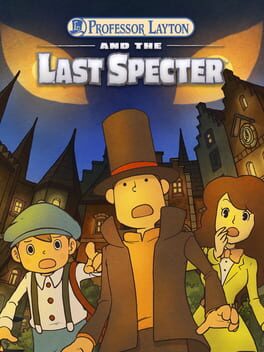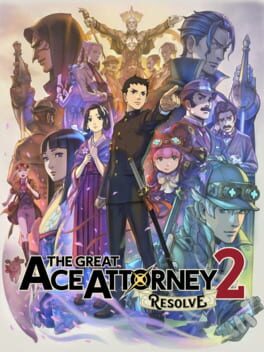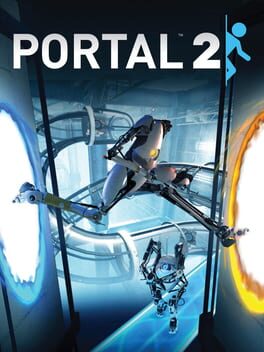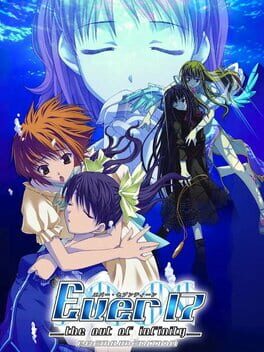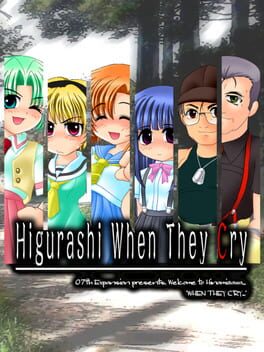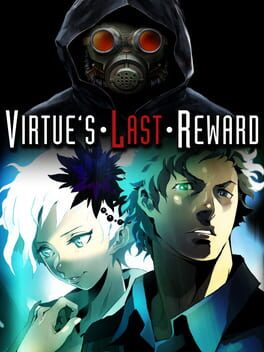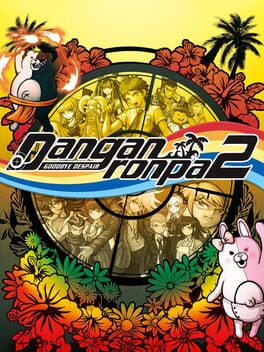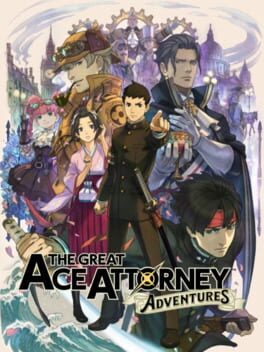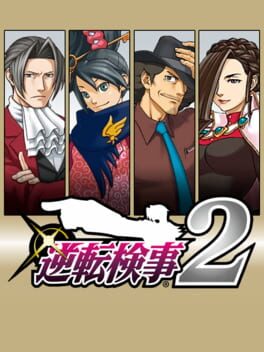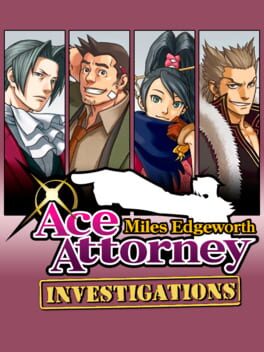metal_cicada
Despite being so much more ambitious than its predecessor in the scope of its ideas, this game's incessant reluctance to meaningfully explore them combined with an absolutely abysmal resolution makes it another disappointment. It's interesting— the way TGAA2 disappoints is very different from TGAA1. With the prior game, I just didn't feel it had a lot of compelling ideas at all. But its sequel is the opposite: the amount of unrealized potential this game contains is absolutely immense.
Susato has great setup in case 1. She seemingly has to confront that her society's restrictions on her gender and occupation prevent her from making meaningful change, fighting back against this by shedding both those perceived roles and proving her worth in court. In the end? She stays resigned to her assistant role forever, with a line in the epilogue suggesting she still ties her self-worth entirely to how well she can perform her societally expected role. Anything resembling setup for her never actually mattered.
Sholmes has great setup all throughout the game. He's frequently invasive and manipulative of other people, with this seemingly being built up as a conflict between him and the protagonists over how irreverently he treats the cases he's involved with. In the end? The conflict is solved by Sholmes telling them he was doing it all for the greater good, and it never gets brought up again, even if the logic he uses to justify himself borders on absurd and completely glosses over half the things he does. No character flaw for you!
Yujin has great setup in case 4. He fully admits to Ryunosuke that he's been a neglectful father, not paying enough attention to the emotional needs of either of his children, and merely distracting himself by going on adventures in London. He promises he'll explain everything. In the end? He explains nothing, and the game basically forgets this was ever a problem past the one time he spoke about it. The last case simply has him going on more wild London adventures with Sholmes, while Ryunosuke affirms he has "the most wonderful family in the world".
Stronghart has great setup in case 5. He explains his entire ideology. It's incredibly morally complex, it ties into the game's criticisms of nationalism, racism, and the media's desire for public spectacle, and it sets up a truly fantastic dilemma that Ryunosuke has to face. In the end? Ryunosuke refuses to even engage the tiniest bit with it. He proclaims that the TRUTH is the most important thing, that Stronghart has no ground to stand on because he's hiding from the TRUTH, and utterly ignores all nuance in the dilemma through arbitrary moralizing.
Every single one of the game's potential deeper meanings are sidestepped in favor of an agonizingly basic 'good vs evil' plot. And nothing exemplifies that more than the deus ex machina at the end of case 5, when Ryunosuke's saved by the same higher power he was just criticizing. It feels completely arbitrary what the game decides is good or bad.
TGAA2's best characters are almost exclusively the side characters in the earlier cases, who aren't propped up to serve a grand moral point, and instead feel like real humans with interesting and layered personalities. Case 2 is the game's best for that very reason. My opinion on this game is similar to my opinion on T&T: full of ideas that could make for an excellent story, but too afraid to ever meaningfully commit to those ideas. It feels like an unfortunate trend with Takumi's Ace Attorney games.
Susato has great setup in case 1. She seemingly has to confront that her society's restrictions on her gender and occupation prevent her from making meaningful change, fighting back against this by shedding both those perceived roles and proving her worth in court. In the end? She stays resigned to her assistant role forever, with a line in the epilogue suggesting she still ties her self-worth entirely to how well she can perform her societally expected role. Anything resembling setup for her never actually mattered.
Sholmes has great setup all throughout the game. He's frequently invasive and manipulative of other people, with this seemingly being built up as a conflict between him and the protagonists over how irreverently he treats the cases he's involved with. In the end? The conflict is solved by Sholmes telling them he was doing it all for the greater good, and it never gets brought up again, even if the logic he uses to justify himself borders on absurd and completely glosses over half the things he does. No character flaw for you!
Yujin has great setup in case 4. He fully admits to Ryunosuke that he's been a neglectful father, not paying enough attention to the emotional needs of either of his children, and merely distracting himself by going on adventures in London. He promises he'll explain everything. In the end? He explains nothing, and the game basically forgets this was ever a problem past the one time he spoke about it. The last case simply has him going on more wild London adventures with Sholmes, while Ryunosuke affirms he has "the most wonderful family in the world".
Stronghart has great setup in case 5. He explains his entire ideology. It's incredibly morally complex, it ties into the game's criticisms of nationalism, racism, and the media's desire for public spectacle, and it sets up a truly fantastic dilemma that Ryunosuke has to face. In the end? Ryunosuke refuses to even engage the tiniest bit with it. He proclaims that the TRUTH is the most important thing, that Stronghart has no ground to stand on because he's hiding from the TRUTH, and utterly ignores all nuance in the dilemma through arbitrary moralizing.
Every single one of the game's potential deeper meanings are sidestepped in favor of an agonizingly basic 'good vs evil' plot. And nothing exemplifies that more than the deus ex machina at the end of case 5, when Ryunosuke's saved by the same higher power he was just criticizing. It feels completely arbitrary what the game decides is good or bad.
TGAA2's best characters are almost exclusively the side characters in the earlier cases, who aren't propped up to serve a grand moral point, and instead feel like real humans with interesting and layered personalities. Case 2 is the game's best for that very reason. My opinion on this game is similar to my opinion on T&T: full of ideas that could make for an excellent story, but too afraid to ever meaningfully commit to those ideas. It feels like an unfortunate trend with Takumi's Ace Attorney games.
2007
I am not a fan of games that are uninterested in telling a story, and I am ESPECIALLY not a fan of when they make me do puzzles without a story. Portal does both of these things, but is somehow extremely fun anyways, so good job. The final boss is really good, though, and I'm glad GLaDOS developed into a more interesting character in Portal 2.
2011
A big step up from its predecessor in almost every way that does exactly what I wanted and absolutely deserves its acclaim of being one of the best games of all time. The dialogue is fantastic, the presentation is shockingly engaging for a 2011 game, the story-gameplay integration is some of the most impressive I've ever seen, and the concepts it explores are really unique. GLaDOS is awesome.
1998
This game has a few great character ideas, but it's clear that character writing isn't what it's focused on at all. It wastes so much time doing nothing interesting only to have the most asinine use of meta I think I've ever seen. I have no idea how people say they find this more satisfying than Remember11.
It was Ryukishi's first work, so of course it's a bit rough around the edges. But beneath its tropey silliness is substantial and emotional writing, with a solid message about relying on others that ties it all together. Higurashi is excellent at exploring the intricacies of abusive situations and how people stuck in them react. Even though the abusers themselves are portrayed a bit too one-dimensionally evil for my tastes, the victims' characterization more than makes up for it. Satoko, Satoshi, and Shion are each incredible depictions of the way these different toxic mindsets manifest in people's lives, and the amount of moral complexity that the latter two have makes it consistently a joy to watch their development. Keiichi is quite the engaging protagonist. Usually I feel like a lot of media makes 'average guy' protagonists such blank slates that it prevents interesting characterization, but Keiichi isn't weighed down at all by this problem, standing as his own fully-explored person. Seeing his internal moral debates with himself over the events of Onikakushi and especially Tatarigoroshi is really engaging, particularly in how he applies his own paranoia-filled rationale to the people around him. The story's also surprisingly good at tying this together by exploring the ideological throughline between all of their situations as well as the unique one Rika is in, even if trying to tie so many complex situations together means some things get a bit oversimplified. Ultimately, Higurashi is a story that simply explores a lot of complicated situations in life with a great amount of nuance, somewhat awkwardly but still decently managing to craft a coherent whole out of them. And despite the ways it stumbles, I can't help but respect it.
Frequently suffers from the same issues as its predecessor, but it does manage to sneak some good characterization in there. The crazy complex sci-fi plot it goes for ends up being so incoherent that it's bad in an amusing way, rather than bad in a boring way. It also thinks sexual harassment is really funny, so that part is bad in an actively painful way.
Nagito is one of the most impressive characters in fiction, and I'm awed by this game's consistent brilliance in characterizing him. The rest of the story prefers to focus on how funny it thinks sexual harassment is rather than meaningfully exploring its cast. There are still a few gems of writing buried elsewhere within, but it just feels like the writers don't really know what to do with them (aside from Hiyoko, who is rather consistently great).
Ace Attorney Investigations 2 is a legal thriller that goes above and beyond the typical standards of its series to deliver something truly special. Subversive of both its immediate predecessor and the Ace Attorney series as a whole, Investigations 2 weaves an entertaining and memorable cast of characters into an intricate plot which thoroughly develops just about every one of them. With strong themes of family and inheritance, powerful and substantial commentary on the justice system, and some of the most impressively constructed mysteries the series has to offer, AAI2 sits proudly at the peak of both its own series and video games in general.
When Yamazaki was talking about this game's development in an interview he said something like "I felt like I couldn't step away from the world of Ace Attorney that Takumi had built." This is very apparent because Ace Attorney Investigations has no interesting theming or character writing. A true successor to Takumi's AA games.
